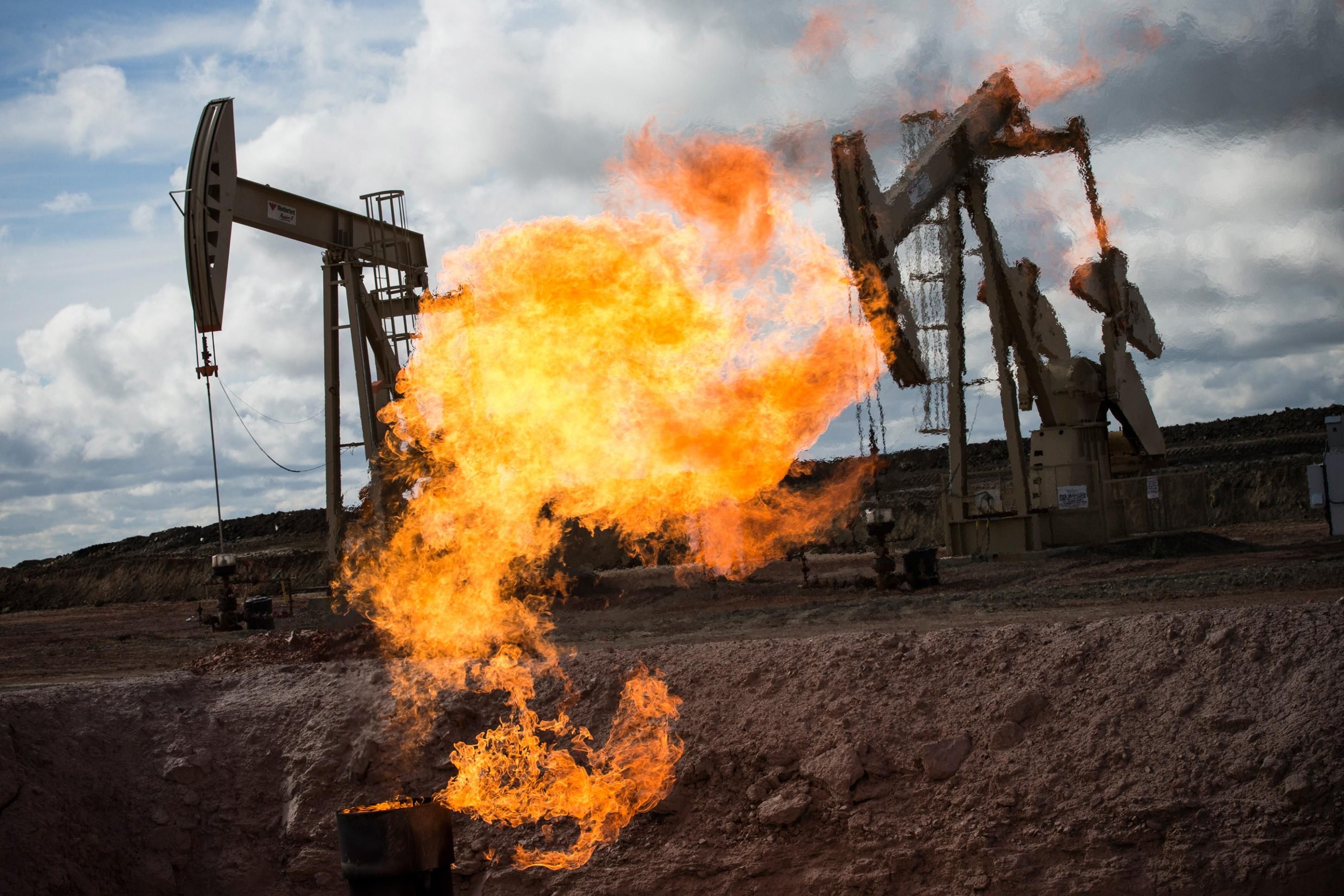
Scientists and activists expressed shock and the need for urgent climate action Wednesday as the United Nations' World Meteorological Organization revealed that atmospheric levels of the three main greenhouse gases fueling catastrophic global heating all hit record highs in 2021.
"You can say goodbye to 1.5°C and 2°C too."
The WMO's annual Greenhouse Gas Bulletin warns that atmospheric carbon dioxide, methane, and nitrous oxide reached unprecedented levels last year. According to the report, carbon dioxide concentrations in 2021 were 415.7 parts per million (ppm), methane was 1908 parts per billion (ppb), and nitrous oxide was 334.5 ppb. These levels are, respectively, 149%, 262%, and 124% above pre-industrial levels.
The report notes that methane concentrations saw their biggest single-year increase since systematic measurements began nearly 40 years ago, while CO2 levels rose at a higher-than-usual rate.
"The brutal truth is here for everyone to see," climate scientist Bill McGuire tweeted in response to the new figures. "Far from emissions being brought under control, they are actually accelerating. This is the worst possible news."
"You can say goodbye to 1.5°C and 2°C too," he added, referring to the Paris agreement's targets for avoiding projected worst-case climate scenarios.
The new report came on the same day that the United Nations warned ahead of next month's COP27 climate summit that nations are falling far short of their commitments to reduce greenhouse gas emissions, and that global heating could hit a catastrophic 2.9°C by century's end absent immediate, meaningful action by major polluters to dramatically slash carbon emissions and transition from fossil fuels to renewable energy.
WMO Secretary-General Petteri Taalas said in a statement that this year's Greenhouse Gas Bulletin "has underlined, once again, the enormous challenge—and the vital necessity—of urgent action to cut greenhouse gas emissions and prevent global temperatures rising even further in the future."
"The continuing rise in concentrations of the main heat-trapping gases, including the record acceleration in methane levels, shows that we are heading in the wrong direction," he added.
Scientists fear soaring concentrations of methane—which is up to 87 times more potent than CO2 over a 20-year period—may have triggered a potentially irreversible climate feedback loop.
As the WMO bulletin notes, scientists still do not fully understand all causes of the sharp rise in methane levels in recent years. Methane is emitted during fossil fuel production and transport, as well as from agriculture and biogenic sources like wetlands.
Last September, the European Union and the United States pledged to voluntarily reduce methane emissions by 30% from 2020 levels by the end of the decade. More than 100 nations have signed on to their Global Methane Pledge.
The world's three leading methane emitters—China, Russia, and India—have not signed the pledge, nor have other major methane polluters like Australia and Iran.
In the U.S., efforts to slash methane emissions have been stymied by opposition from the fossil fuel industry and the politicians it influences through campaign contributions. For example, Sen. Joe Manchin (D-W.Va.), whose family owns a coal brokerage and who is currently by far the largest congressional recipient of oil and gas industry contributions, has been a staunch opponent of bold climate action.
Critics call the 30% target a step in the right direction but insufficient to adequately address the emissions crisis. The International Energy Agency said last October that a 75% reduction in methane emissions by 2030 is "essential" to combating the climate emergency.
"There are cost-effective strategies available to tackle methane emissions, especially from the fossil fuel sector, and we should implement these without delay," Taalas argued.
"However, methane has a relatively short lifetime of less than 10 years and so its impact on climate is reversible," he added. "As the top and most urgent priority, we have to slash carbon dioxide emissions, which are the main driver of climate change and associated extreme weather, and which will affect climate for thousands of years through polar ice loss, ocean warming, and sea level rise."
This content originally appeared on Common Dreams - Breaking News & Views for the Progressive Community and was authored by Brett Wilkins.
Brett Wilkins | Radio Free (2022-10-27T14:54:51+00:00) ‘Worst Possible News’: Scientists Urge Immediate Action as Greenhouse Gas Levels Hit All-Time High. Retrieved from https://www.radiofree.org/2022/10/27/worst-possible-news-scientists-urge-immediate-action-as-greenhouse-gas-levels-hit-all-time-high/
Please log in to upload a file.
There are no updates yet.
Click the Upload button above to add an update.